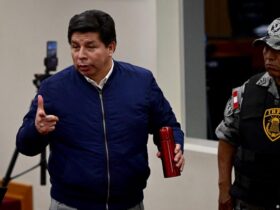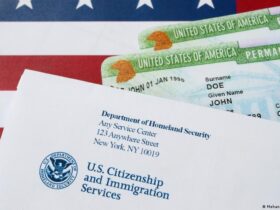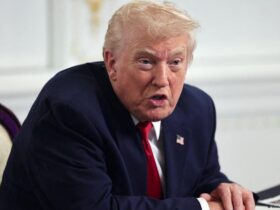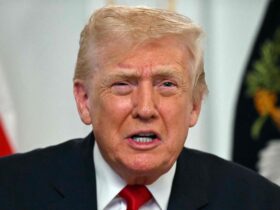Normally, the Namanga one-stop border post is a place of commerce, being a busy artery connecting the ports of Mombasa and Dar es Salaam. But in the days following Tanzania’s recent disputed elections, it became the epicenter of the regional democratic crisis.
As protests erupted over the boycott of opposition candidates in the election amid allegations of vote-rigging, youth activists from neighboring Kenya attempted to cross the border – not with goods, but with messages of solidarity.
However, that effort led to a violent standoff: “The police have fired tear gas at us. They have shot Kenyans across the border. It’s been a bad day,” said a Tanzanian youth protesting in the border area.
Meanwhile, at least two Kenyan civilians are reported to have been killed in the ensuing clashes – in addition to hundreds of Tanzanian victims.
Digital solidarity bypasses the blackouts
This physical impasse serves as a powerful metaphor for a new reality in Africa: the struggle for democracy in civic space in a country can no longer be contained within its territorial borders.
Young protesters not only draw inspiration from each other but also unite in the hope of creating a better future for all.
Meanwhile Tanzanian authorities are resorting to their well-documented tactics of suppressing such dissent after the election, throttling internet bandwidth and cutting off access to social media giants like WhatsApp, TikTok Live and Instagram Live, effectively implementing an information blackout.
But even in digital darkness, young protesters manage to seek out and connect with like-minded individuals; In fact, this is where Kenyan civil society and individual digital users stepped in:
Operating from Nairobi, Kenyan media outlets and activists became an external press corps for dissidents in neighboring Tanzania, amplifying suppressed voices and sharing graphic images and videos that the Tanzanian government tried hard to conceal.
Neighbors in the fight for democracy
Yasin Juma, a veteran Kenyan journalist based in Nairobi, explains the important role of Kenyan activists as follows:
“While the violence was ongoing in Tanzania, Kenyan activists managed to organize themselves in Nairobi, where they were meeting to tell the world what was happening in Tanzania, noting that the media in the country were not speaking about the events and the internet was completely blocked.”
Kenya-based amplification was crucial to maintaining global awareness of the ongoing events in Tanzania, ensuring that the story of alleged human rights abuses – including reports of security forces shooting protesters and hiding their bodies – did not disappear into the void of the digital shutdown.
Institutional push for EAC accountability
This cross-border solidarity is not only felt on the street or on social media; This is reflected at institutional levels as well.
Kenyan civil society organizations (CSOs), such as the Kenya Human Rights Commission (KHRC), have been consistently lobbying regional bodies such as the African Union (AU) and the East African Community (EAC) to implement their protocols on good governance and human rights and to hold the government of Tanzanian President Samia Suluhu Hassan to account.
This pressure is significant because the EAC treaty explicitly calls for adherence to “universally accepted principles of good governance, democracy, rule of law, human rights and social justice” as a key consideration for membership in the bloc.
This type of advocacy work transforms Tanzania’s democratic challenges from a domestic issue to a matter of regional accountability, forcing East African governments to confront those who hold power and control in Dodoma.
Veteran politician, lawyer and activist Martha Karua has been particularly vocal about recent developments in what she calls “the unholy alliance of East African rulers”.
“We are facing a regional crisis. Not an economic crisis. Not a trade crisis, but a crisis of democracy. For the leaders of the EAC, you cannot talk about unity while jailing, kidnapping and torturing your own citizens and criminalizing the free movement of people, which is why jamuiya (The community) exists,” she said.
High costs of cross-border activism
Yet, such acts of cross-border solidarity come at a high cost, perhaps best illustrated by the harrowing accounts of those who dared to cross Tanzanian territory.
Kenyan activist and photojournalist Boniface Mwangi traveled to Dar es Salaam with Ugandan activist Agather Atuhaire to observe the treason trial of opposition leader Tundu Lissu.
They were later detained and allegedly beaten and tortured before being dumped separately at their respective borders.
The allegations they make against authorities in Tanzania, which also include accounts of sexual harassment, point to the shocking reality that political repression is equally international.
Indeed, there are increasing reports and allegations that security agencies are now coordinating repressive operations across borders to silence critics and prevent regional cohesion.
Intelligence agencies are working together to suppress dissent
Bob Njagi, an activist who was kidnapped in Uganda, shares his experience after returning to Nairobi:
“We realized that the three governments are cooperating with each other [Ugandan president] Museveni, our president [William] Wait, and [Tanzanian president] Samia Suluhu. Our arrests were carried out in a coordinated manner,” Njagi told DW.
Former Chief Justice of Kenya Willie Mutunga and politician Martha Karua were also detained in Tanzania and then deported for attempting to observe the trial, sending a message from the Tanzanian state that Kenya is no longer a safe base for its critics.
Even self-exiled Tanzanian activist Maria Sarungi narrowly escaped being kidnapped by security men in Nairobi.
A new era of borderless disagreement
Kenya’s response to the Tanzanian crisis also highlights a deeper shift in East African politics. The region is witnessing a “democratic renaissance,” largely driven by a young, digitally native generation that sees human rights violations everywhere in the community as a threat.
As Tanzanian Gen-Z protesters plan another mass protest in mid-December, Kenyan activists have already declared their solidarity with them.
Activist Njagi promised to provide regional support: “On December 9, they have declared it Independence Day. We, in Kenya too, are declaring a complete shutdown. We are going to stand in solidarity with our brothers in Tanzania. We are going to close our borders to Kenya in solidarity with Tanzania.”
However, the ultimate question is perhaps whether these forces of solidarity can prevail against coordinated state repression, as this fight for democracy and accountability is bound to define the future of not only Tanzania, but the nation as a whole in East Africa and beyond.
Edited by: Serton Sanderson






Leave a Reply